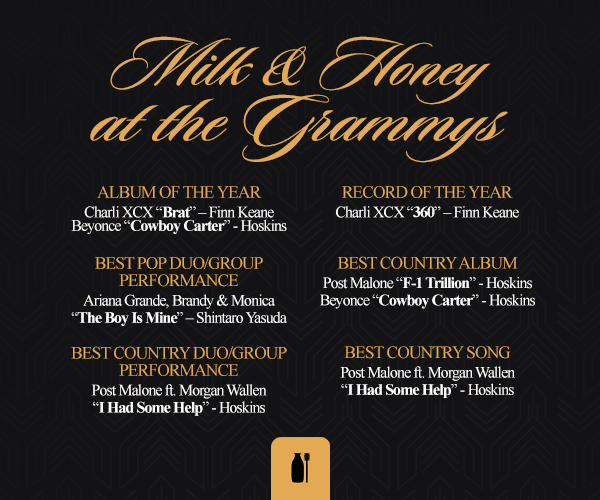Just last week, prominent music industry analyst William Packer of BNP Paribas Exane upgraded Universal Music Group‘s stock for the second time in a year.
In a vote of confidence in UMG’s future value, Packer lifted his stock rating from “neutral” to “outperform”.
That news came just a few days after we reported the confidence expressed in UMG’s long-term prospects by Bill Ackman’s Pershing Square Holdings, which owns approximately 10% of UMG’s equity.
Now, more positive news has arrived for the global recorded music industry. Fitch Ratings, one of the ‘Big Three’ credit rating agencies in the United States, has assigned UMG rival Warner Music Group a first-time Long-Term ‘Issuer Default Rating’ (IDR) of ‘BBB‘.
According to the ratings system guide on the Fitch website, an IDR rating of BBB is good news for the company receiving the rating.
Within its research note published on Wednesday (September 4), Fitch wrote that WMG’s rating “reflect[s] its leading position in the music entertainment industry supported by its extensive portfolio of music assets and diversified revenue base”.
The note added that the rating also considers “the company’s modest leverage and robust Free Cash Flow (FCF) generation, balanced against the inherent volatility of its hit-driven recorded music segment.”
Fitch said that its Outlook for WMG also incorporates expectations for “continued growth in paid music streaming, expansion into emerging markets and new monetization opportunities from new platforms and dedicated superfans”.
William Packer’s UMG stock upgrade, Pershing Square’s positive view about Universal, and Fitch’s BBB rating for Warner Music Group couldn’t have come at a better time for the global music business.
In recent days, questions have been raised about the future of the US subscription streaming market following data published by the RIAA that shows a steady pattern of deceleration in the growth of subscriptions in the US market.
Industry revenues in the world’s largest recorded music market grew just 4% YoY in the first six months of 2024, according to RIAA data. Total streaming subscription accounts in the US grew by just 2.7% YoY in the same period.
As we’ve pointed out in our coverage over the past few days, the US might be the world’s largest recorded music market, but its rate of growth doesn’t reflect the situation in all other markets globally, especially fast-growing emerging ones where there’s still a lot of headroom for paid streaming adoption.
In Brazil, for example, where streaming makes up over 99% of its domestic recorded music market, numbers published by local trade body Pro Musicá’ this week gave the global industry reason to celebrate – following the somber mood induced by the RIAA’s numbers last week.
Revenues captured by the Brazilian market’s recorded music industry grew by 21% YoY in H1 2024, reaching USD $257 million (BRL 1.442bn) in the period, according to numbers published by local trade body, Pro Musicá’.
The country’s recorded music business generated BRL 1.430 billion (USD $255m) from streaming in the first half of 2024, up 21.1% YoY.
Within that figure, subscription streaming contributed BRL 995 million (USD $177m), up 28.4% YoY, while ad-supported streaming platforms contributed BRL 436 million ($78m), up 6.6% YoY.
Indeed, in explaining its decision to assign Warner Music Group the BBB rating this week, Fitch noted that the “global music industry has strong growth potential with opportunities from continued adoption of paid streaming services, price increases by Digital Service Providers (DSP), growth in emerging markets, monetization from new platforms and premium plans for superfans”.
Fitch added that it “believes [WMG] is well positioned to capitalize on emerging market opportunities”.
The rating agency added: “Although major labels have signed licensing rights with platforms like Meta and TikTok , Fitch believes there is still a sizable value gap from unlicensed use of music by emerging platforms such as short-form video, exercise, gaming, and livestreaming.”
Another key reason shared by Fitch for its confidence, not only in Warner Music Group, but music rights in general, was what it argues is the “continued Relevance of Major Labels”
According to Fitch, “music streaming and digital media platforms have democratized music discovery and promotion, thereby creating a crowded landscape.
“Despite this, Fitch believes that majors like WMG are uniquely positioned due to their global scale, differentiated platforms and expertise.”
Fitch also cited WMG’s “Consistent Capital Allocation” and suggested that “WMG prioritizes growth investments, along with shareholder returns via dividends and proactive capital structure management.”
Fitch said that it “anticipates WMG will grow via organic investments and strategic acquisitions to expand music rights, geographic reach, and services”.
One such investment arrived in July when Warner Music Group acquired a minority stake in Brazil’s Sua Música, which runs a UGC music platform and services business, which operates across digital distribution, artist management and publishing.
Warner said in a press release on July 17 that Sua Música “will be a significant partner” for its strategy of “expanding presence in all regions of the Brazilian market, boosting its authority in regional music, local partnerships, and sharing expertise in discovering new voices to create the catalogs of the future”.
Warner Music Group’s CEO Robert Kyncl has previously indicated that he’s keen to grow WMG’s presence in the so-called “middle class” artist market.Music Business Worldwide





